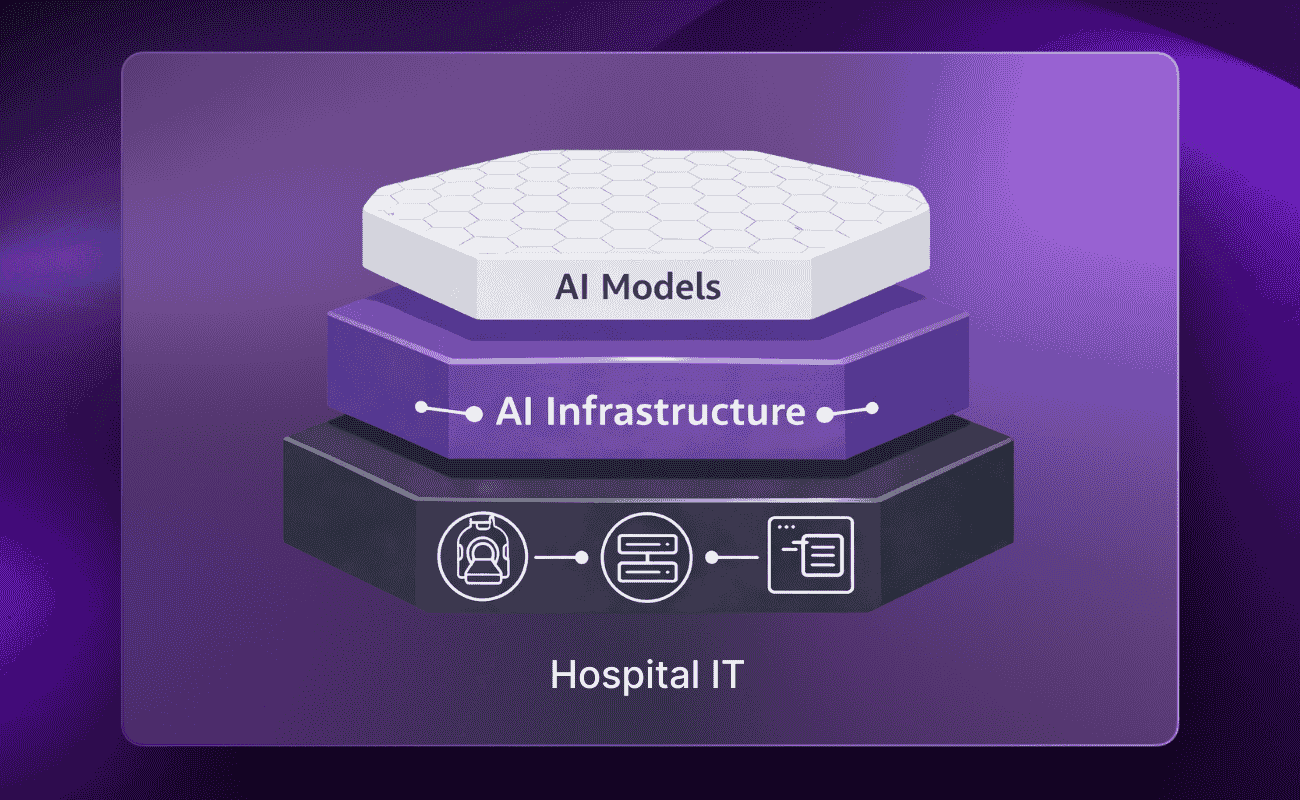Can Physicians Be Convinced by the Benefits of AI for Radiology?
10 Key Findings from a Recent Study using AI in Emergency Radiology

Artificial intelligence (AI) is revolutionizing the field of radiology, and a recent study titled "Implementing Artificial Intelligence for Emergency Radiology Impacts Physicians' Knowledge and Perception: A Prospective Pre- and Post-Analysis" [1] sheds light on how AI is reshaping the way physicians perceive and use this technology. Facilitated by the implementation of deepcOS via trusted partner deepc, the study was conducted by a team of medical professionals from the Department of Radiology at University Hospital LMU in Munich, Germany, to evaluate the impact of integrating an AI solution for emergency radiology into clinical practice. The results are not only promising but also offer valuable insights into the future of AI for trauma use-cases such as fracture detection in bone X-ray.
10 key findings from the study on physicians’ impressions of AI after exposure to its use:
1. AI as a Second Reader
The study highlights the concept of AI as a "second reader", emphasizing its role in supporting physicians rather than replacing them. This idea is crucial because it dispels the fear that AI could replace human radiologists and reinforces the collaborative role AI can play in the healthcare system.
2. Increased Safety
One of the most significant findings from the study is that after implementing AI, physicians reported feeling safer in their reading. The AI was seen as a tool that enhances the accuracy and reliability of radiological diagnoses, ultimately benefiting patient safety.
3. Reduced Missed Findings
AI also proved its worth in reducing the number of missed findings. After using the technology, the study notes that physicians increasingly felt that AI decreased missed findings, which is a critical aspect of patient care and also a notable consideration with respect to additional revenue streams.
4. Improved Workflow
While the study showed only a non-significant trend that AI made physicians "faster," it did find a significant increase in the belief that AI could "speed up workflows in the ER". This suggests that AI can be valuable in optimizing radiology processes.
5. Concerns About Replacing the Radiological Report
Interestingly, physicians’ skepticism that AI could replace the radiological report actually increased after using AI. This shift in perception demonstrates the importance of maintaining a human-in-the-loop approach in medical diagnostics, where AI serves as a supportive tool, enhancing the capabilities of healthcare professionals rather than replacing their expertise.
6. Increased Knowledge About AI
The study revealed that the implementation of AI into clinical practice had a positive educative aspect. Physicians reported an increase in their knowledge about the chances and risks associated with AI. This result indicates that hands-on experience with AI can be an effective way to learn and understand its capabilities.
7. Strong Interest in Continued AI Use
A unanimous desire to continue using AI was observed among participants. This enthusiasm for AI solutions suggests that physicians see the value in these tools and want to incorporate them into their regular practice.
8. Variable AI Usage Among Different Medical Specialties
The study found variations in the adoption and usage of AI solutions among different medical specialties, with radiologists more likely to use AI results compared to traumatologists. These differences may be influenced by the nature of their clinical workflows and the type of cases they handle, highlighting the need for tailored AI implementation strategies in different medical domains.
9. Age and Experience Influence Perception
Older and more experienced physicians tended to be more skeptical of AI and were less likely to use AI results. This discrepancy could be due to varying levels of familiarity with AI and the extent to which AI complements their expertise.
10. Impact on Patient Care and Revenue
The study suggests that AI's primary benefit is not solely faster diagnostic reading, but rather an increase in patient safety and the quality of care provided. Correct fracture recognition at the initial presentation can lead to more accurate treatment, potentially increasing revenue for healthcare facilities and reducing medical malpractice risks.
Implications for the Wider Adoption of AI
This study's findings are not only illuminating but also highly encouraging for the broader adoption of AI solutions in healthcare, particularly in radiology. Physicians' increased confidence in AI's ability to enhance their work, improve patient outcomes, and streamline workflows suggests that AI is not just a tool but a valuable ally in the field of medical diagnostics. Yet, as AI continues to evolve and prove its value, it's clear that the healthcare industry will need a practical means to scale its use of AI solutions. A platform that facilitates evaluation and integration of an extensive selection of AI solutions under a common technical and legal framework will be necessary to fulfill this requirement. And this was ultimately a necessity for the radiology department at LMU Hospital- who later scaled to many more AI solutions seamlessly on deepcOS.
The results of this study align with a growing interest in AI among physicians, highlighting the importance of exposure to the technology in clinical settings. As we move forward, the integration of AI into healthcare is not about replacing physicians but about enhancing their capabilities and improving patient care. AI can act as a powerful aid, helping physicians make more accurate diagnoses and treatment decisions. It's a promising future, and this study is a testament to the transformative potential of AI in radiology and beyond.
Reference
[1] Hoppe, Boj Friedrich MD; Rueckel, Johannes MD; Dikhtyar, Yevgeniy MD; Heimer, Maurice MD; Fink, Nicola MD; Sabel, Bastian Oliver MD; Ricke, Jens MD; Rudolph, Jan MD; Cyran, Clemens C. MD. Implementing Artificial Intelligence for Emergency Radiology Impacts Physicians' Knowledge and Perception: A Prospective Pre- and Post-Analysis. Investigative Radiology ():10.1097/RLI.0000000000001034, October 17, 2023. | DOI: 10.1097/RLI.0000000000001034

.avif)
.png)
.png)


.png)
